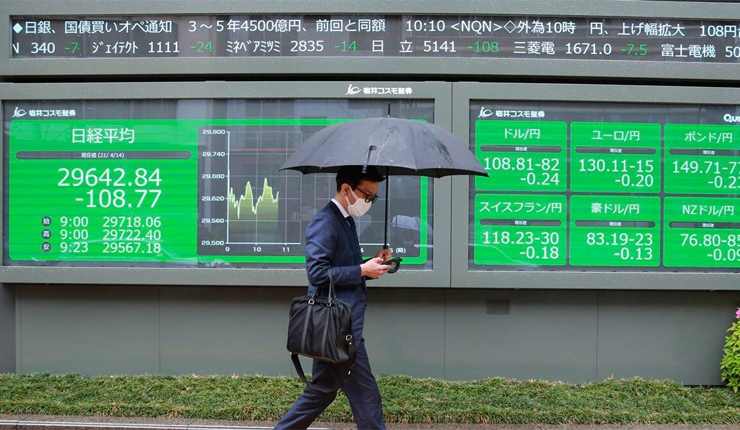Asian stocks edged higher on Monday, reaching a 15-month peak, as investors awaited key inflation data from the United States this week, Reuters reported. The figures could significantly impact expectations for US interest rate cuts.
China’s economic activity data, due for release on Friday, is also being closely watched to gauge the sustainability of the world’s second-largest economy’s recovery.
Earlier reports of a welcome rise in China’s annual inflation to 0.3 per cent in April helped alleviate concerns about deflation. Forecasts anticipate further growth in April’s retail sales and industrial output data.
Meanwhile, Chinese authorities plan to sell 1 trillion yuan ($138.24 billion) in longer-dated bonds to support domestic stimulus spending.
The positive sentiment propelled Chinese blue chips to a seven-month high. However, the index dipped slightly 0.1 per cent on Monday due to worries about potential new US tariffs on Chinese goods.
Japan’s Nikkei slipped 0.3 per cent amid speculation of potential rate hikes by the Bank of Japan due to a weakening yen. MSCI’s broadest index of Asia-Pacific shares outside Japan edged up 0.1 per cent.
Globally, markets are keenly awaiting the US April inflation report to see if price increases moderate after three months of exceeding expectations.
Forecasts suggest a potential slowdown in core consumer price growth from 0.4 per cent in March to 0.3 per cent in April, potentially influencing bets on the Federal Reserve’s monetary policy decisions.
A lower inflation figure could bolster expectations of a Fed rate cut as early as July, while a higher reading might delay cuts until past September.
Meanwhile, strong US corporate earnings continue to buoy investor sentiment. With 80 per cent of S&P 500 companies having reported results, earnings are on track to increase by 7.8 per cent, exceeding initial expectations.
The US dollar remains supported by the nation’s economic outperformance. Only the threat of intervention by Japan is preventing the dollar from retesting the 160-yen mark.
Oil prices retreated slightly after rising earlier due to concerns about potential supply disruptions. Brent declined 22 cents at $82.57 a barrel, while US crude dipped 17 cents to $78.09 per barrel.


